Amidst the bustling school halls, a question echoes in my ears repeatedly: “Should I join Model UN?”
Students, eager to explore the sprawling world of diplomacy, often seek guidance on whether MUN is right for them, and I find myself offering the same set of criteria to these curious minds.
The Formula for MUN Success
This criterion works, essentially, as a formula to determine whether or not Model UN is a positive step for one to take or will leave them feeling discouraged and unenlightened.
Although this formula may seem excessive, the truth is that you need a very particular type of person to become a “MUNner,” as we MUN kids like to say.
Every year, the signup sheets are always overfilled, limiting the club to students in Global Studies and seniors.
Although the selection process is designed to select students who will gain the most from the MUN experience, it’s not always the most accurate.
Not all Global Studies Economics majors and high school seniors will leave MUN with a positive takeaway, and there are plenty of hard-working lowerclassmen and students in different diploma programs who, given the chance, would excel and thrive in the MUN environment far more.
The Reality Behind the Resume
I joined the Global Studies Program in tenth grade to explore whether or not humanities was a path I could see myself pursuing in college and throughout higher education.
However, I had no idea of the real commitment that the program entailed, or the dedication I would have to show if I wanted to earn my Global Studies diploma.
I quickly realized, in determining which concentration would best fit me, that I would have to take three electives or eight courses, each semester if I wanted to commit to Journalism, become an editor, and fulfill all of my elective requirements for Global Studies.
Although it felt overwhelming at the time, there has not been a moment that I have regretted joining the program.
Its requirements encouraged me to take electives that I never would’ve chosen on my own, and I have learned multitudes from them in the process, all while discovering my love for the humanities.
Despite my positive experience, many students might have struggled with taking extra classes and engaging in unfamiliar subjects, especially if they only chose to apply to the Global Studies program because they thought it would look good on their resumes.
The same goes for Model UN.
Many students apply, thinking that it is merely a fun way for them to bond with their peers outside of the classroom at Yale’s conference, not taking into consideration the amount of work and time they would need to commit to it in order to excel.
Although it is a fun bonding experience ample with free time to explore New Haven, there is much more to the experience than just a social event.
If you are willing to open your mind to it, you can walk away a completely different person.
But without the willingness to step out of your comfort zone, and the commitment to preparation and the process, the experience is rather meaningless.
So instead of vaguely concluding that “you should join MUN,” I’m here to help you figure out if you should join MUN.
First Level of Criteria
The first common misconception that I repeatedly face is that MUN is only for humanities-focused students.
Many students assume that because you’re practicing diplomacy, the program is only designed for future global studies and international relations scholars.
But the truth is far more complex.
If you are accepted into the School’s MUN club, you will have an abundance of choices for committees comprising General Assemblies, Economic and Social Councils, Regional Bodies, Specialized Agencies, and Crisis Committees; this year there were 50.
Each one is completely unique from the next and covers a vast array of topics designed to develop innovative and collaborative thinking.
With this level of variance, each committee requires a nuanced way of thinking and background knowledge.
For instance, those who studied economics may thrive in the World Bank, while those who study environmentalism could consider joining the UN Office for Disaster Risk Reduction.
If you have a knack for Percy Jackson or loved the new Barbie movie, you might even consider applying to a specialized agency such as Percy Jackson and the Olympians or a crisis committee like Citizens of Barbieland.
MUN quite literally has something for everyone! It doesn’t matter if you plan on majoring in Astrophysics or Sociology, MUN can help you learn and grow in ways you didn’t know you could.
Not to mention, at the Yale conference, an assortment of lectures and workshops from dedicated professors are available to interested students, which they design to help you grow your sphere of academia.
Second Level of Criteria
The second common misconception that I’m repeatedly confronted by is that MUN is the perfect place to sneak in substances and sneak off with friends, essentially that the conference has very few regulations in place and students will not face long-term consequences for discrepancies.
The truth, although many like to deny it, is that the MUN security team is incredibly strict with substance abuse, and will make sure your advisors are aware of all of your actions.
In reality, Yalees wander the halls of the Omni hotel at night to patrol potential incriminating activity.
Multiple students in my committee this year were forced to leave their sessions and listen to their advisors call their parents because they had broken MUN’s policy on substance abuse.
In addition, your committee chairs take attendance before each session and after every break, so if you’re not there, they will report back to your advisor immediately.
Some students were shocked this year when our advisor mentioned that the YMUN security team can search your personal belongings if they suspect you have illegal substances. Any students who do not want to face the wrath of their advisor should carefully think about how they plan on utilizing the trip.
Third Level of Criteria
The third common misconception that needs to be addressed is that MUN is only meant for extroverted people who have no social anxiety.
A frequent question I’ve faced is, “But isn’t it scary standing up in front of tons of people and voicing your delegation’s opinions?”
Now, I could lie to you and say, “No, not once you get used to it,” but in my experience, public speaking and the intense level of socialization MUN entails will always feel intimidating.
However, it’s when we’re intimidated and uncomfortable that we can learn and grow the most.
In my first year, I went to the conference intending to stay a silent participant. To say I was intimidated is a vast understatement.
Since I had done virtually no research and had no idea how to engage with formal MUN procedures, I felt unbelievably out of my element. Delegates were holding up their placards left and right, making passionate speeches, and passing notes back and forth with an overwhelming urgency.
Despite my lack of preparation and understanding of the procedure, I felt a compelling urge to stand up and chime in rise within me. I made two speeches during that first committee session and walked away with a passion for debate sparked within me that I hadn’t had prior.
I’ve always felt a dire need to participate, not for a grade or recognition, but because I love it. I love learning with the people around me and engaging in daunting and unfamiliar territory.
It’s utterly invigorating to me.
Unfortunately, not everyone feels the same. Many students avoid participation and will do anything to avoid being singled out in class.
Being scared doesn’t mean you shouldn’t speak up, it means you have a reason to. We feel fear of speaking when the stakes are higher and when our words are valued more.
Your words will be valued at MUN, but you have to be willing to stand up and take the chance.
That’s why, before hastily scribbling your name on the sign-up sheet, you should examine the criteria that might make or break your MUN journey.






















































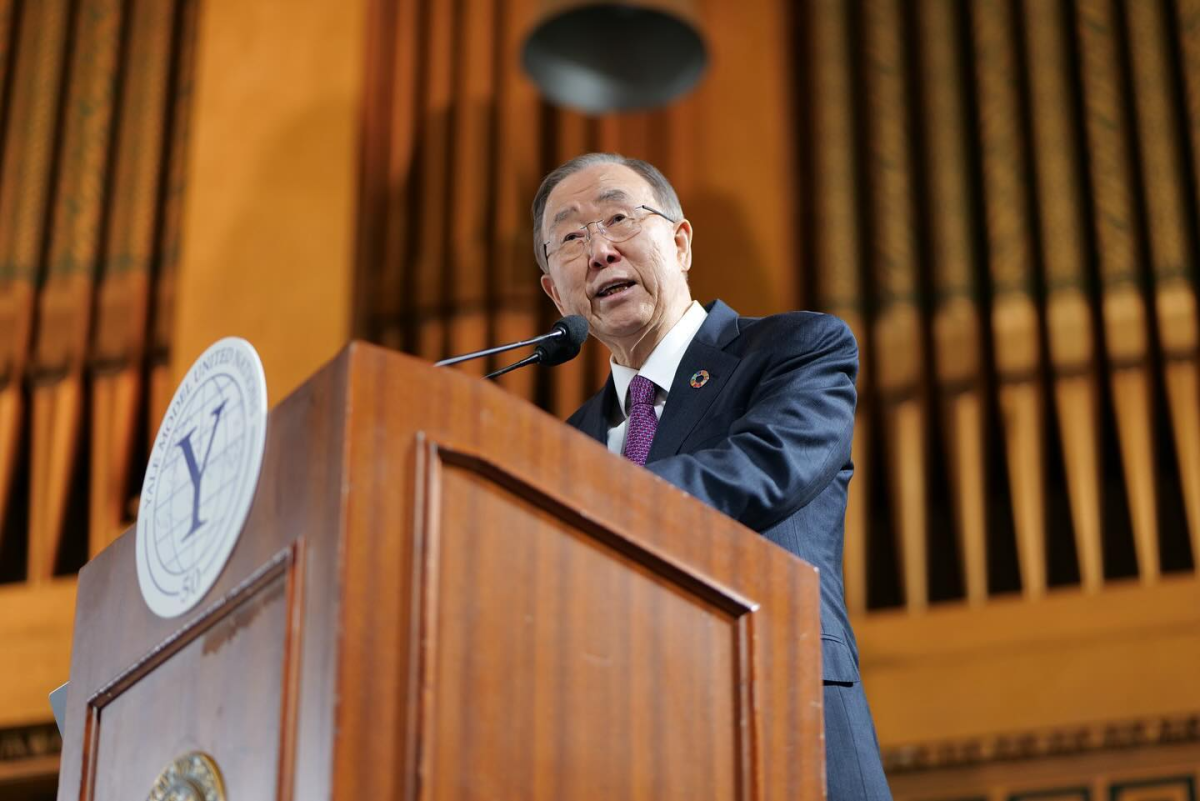
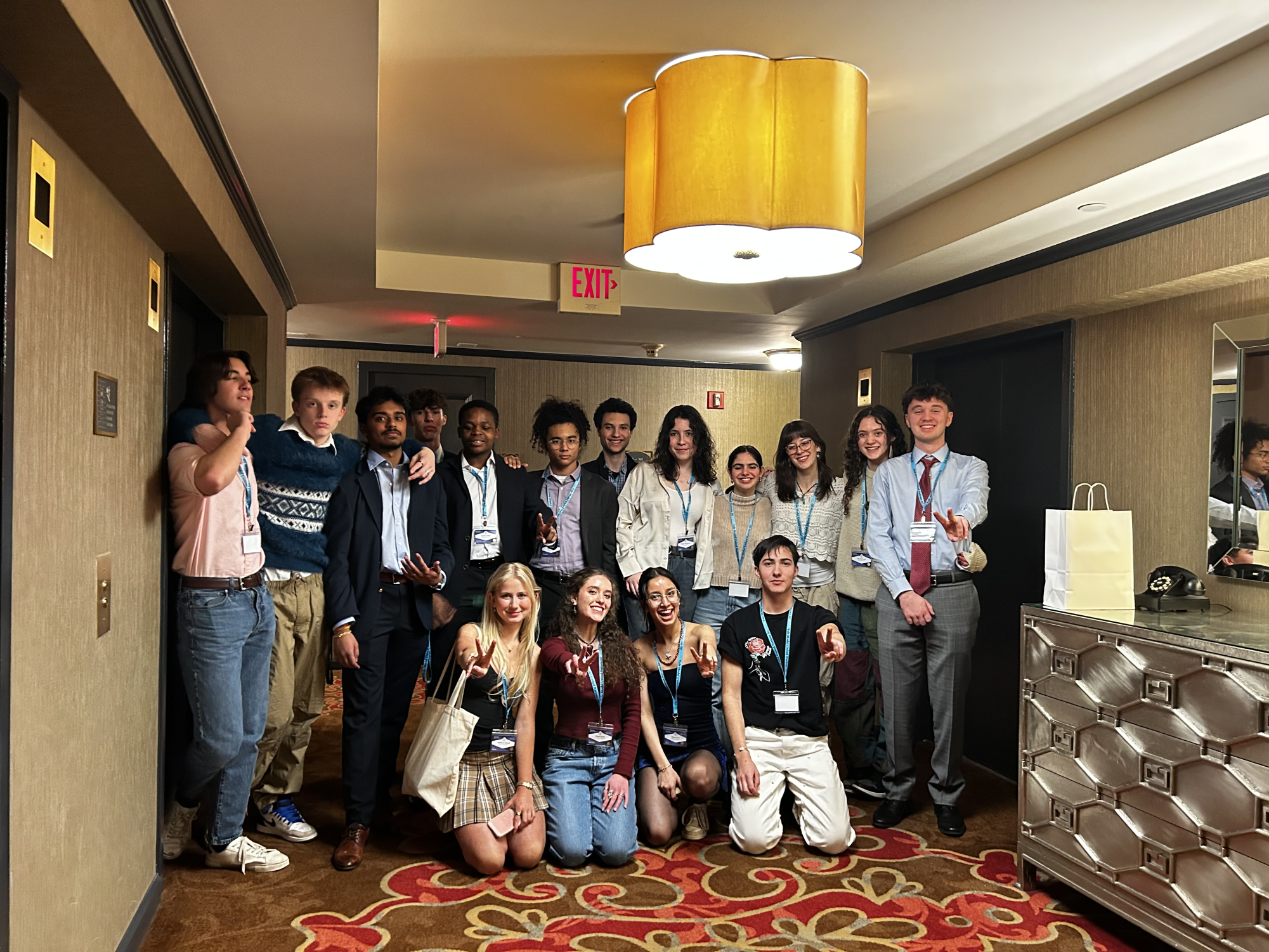
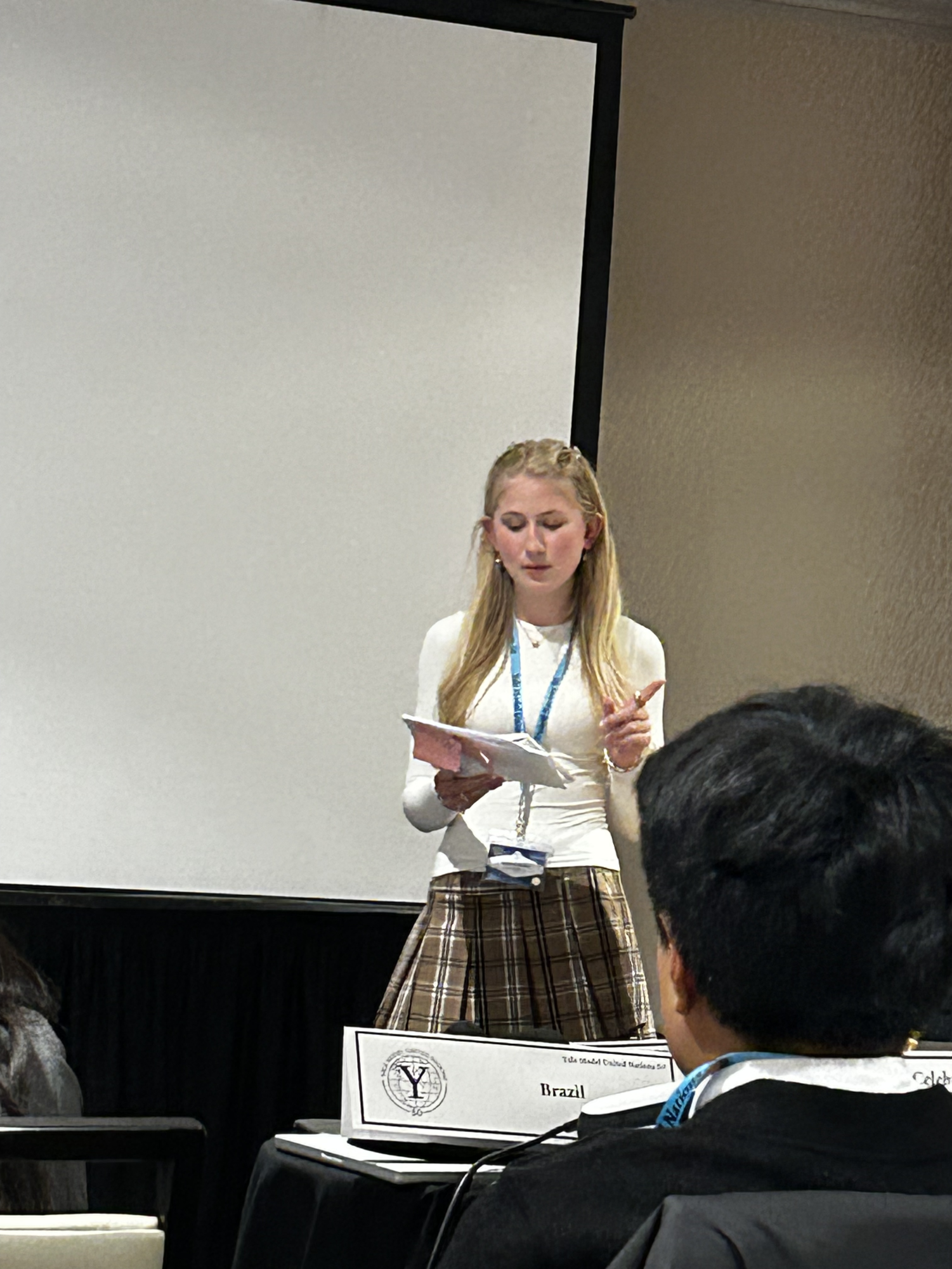
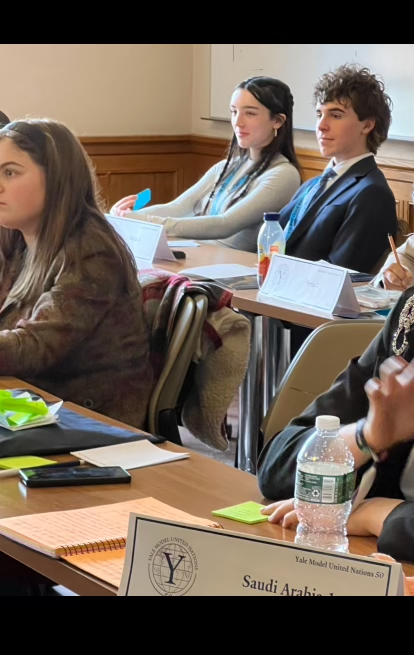
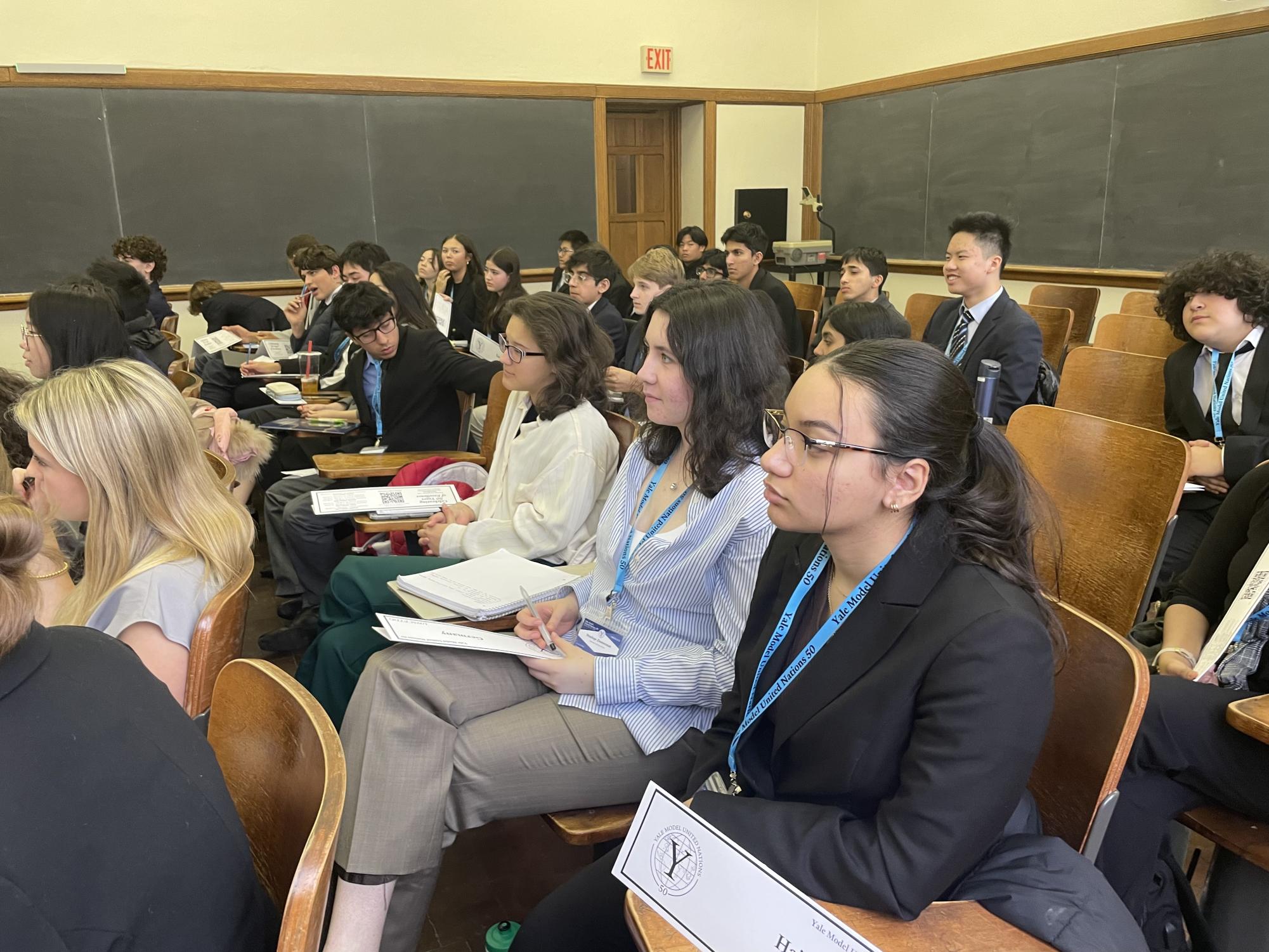
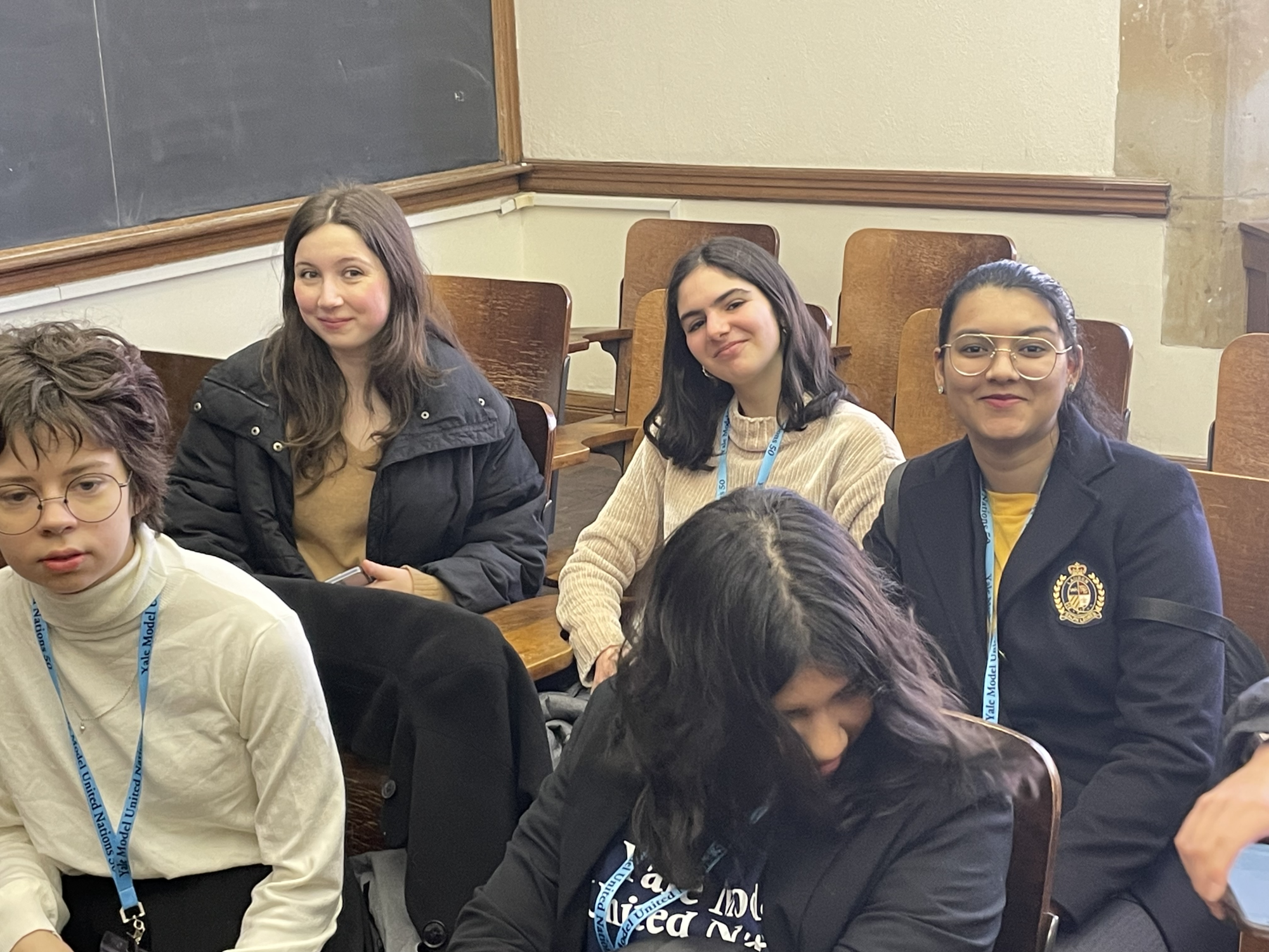
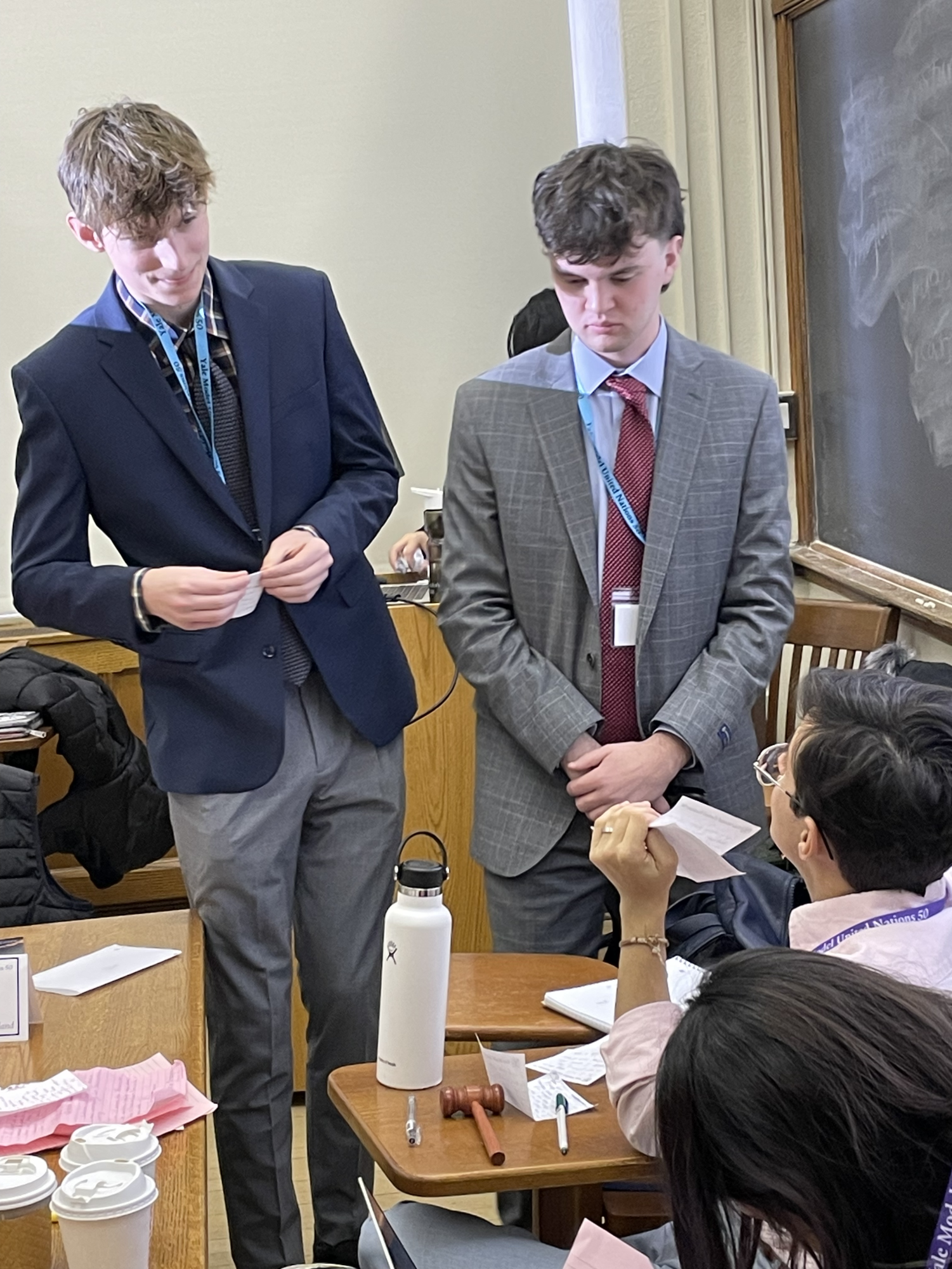
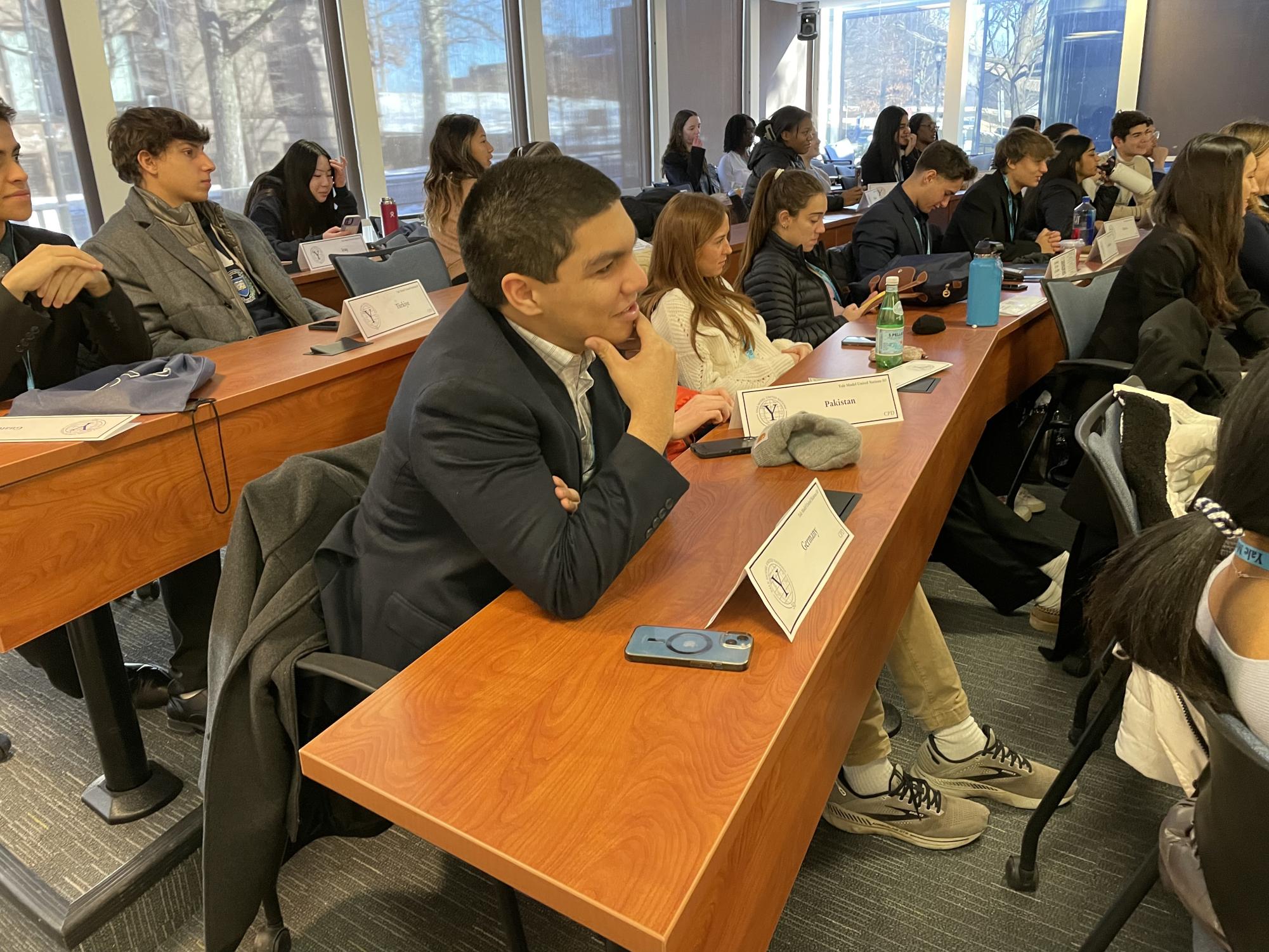
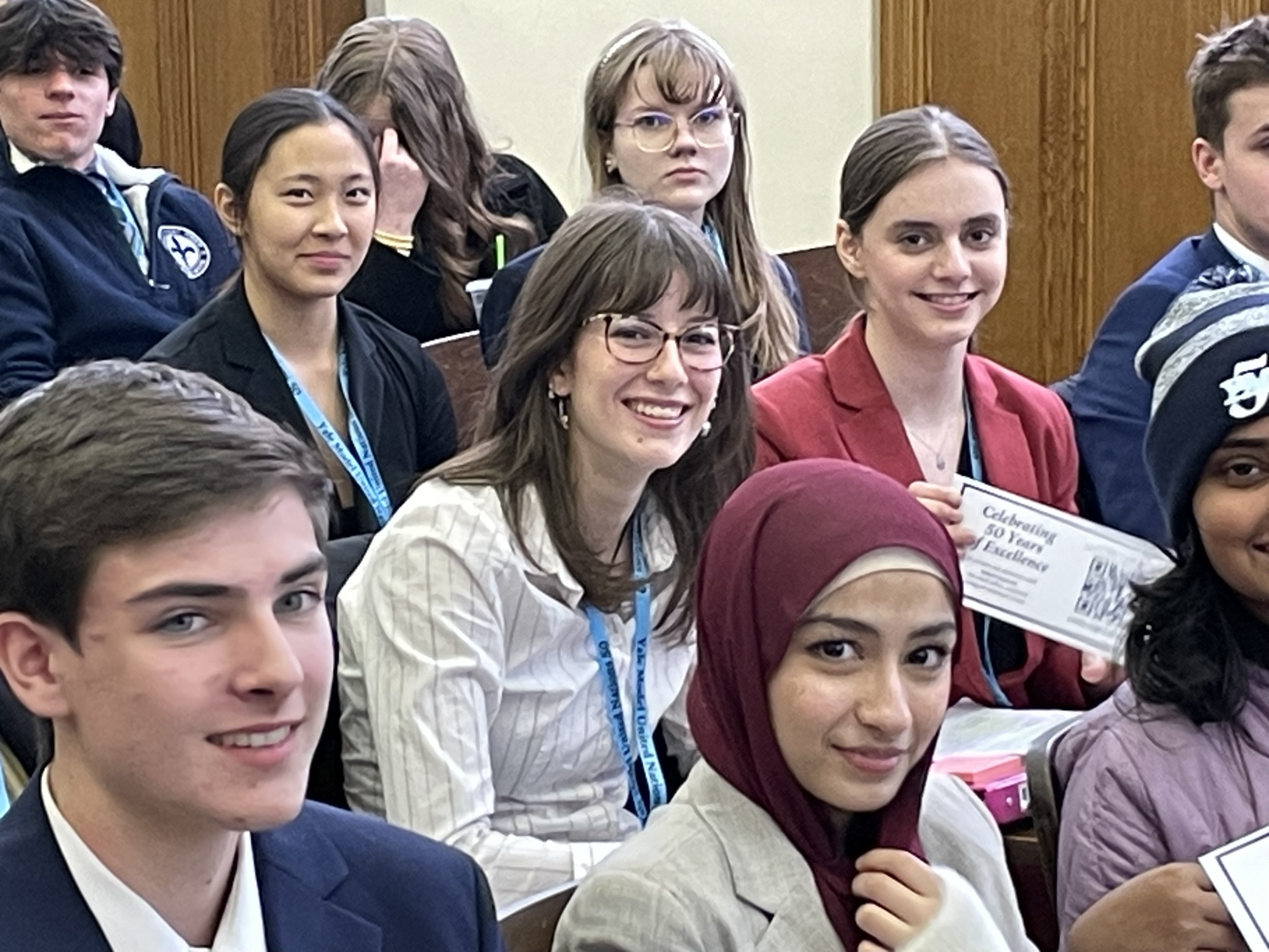

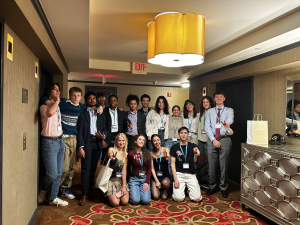
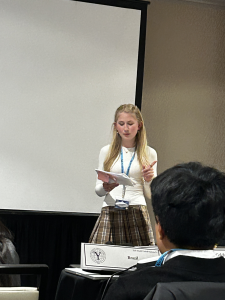
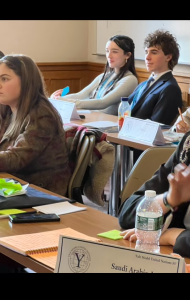
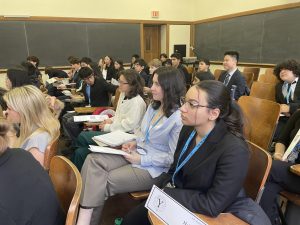
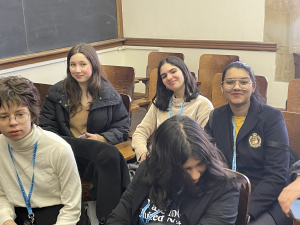
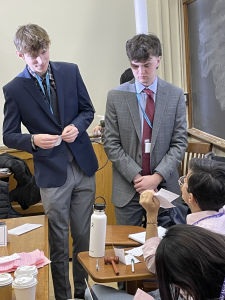
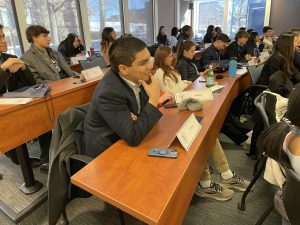
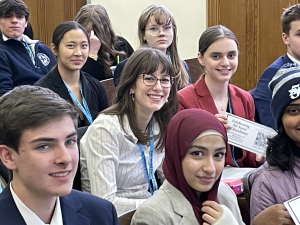

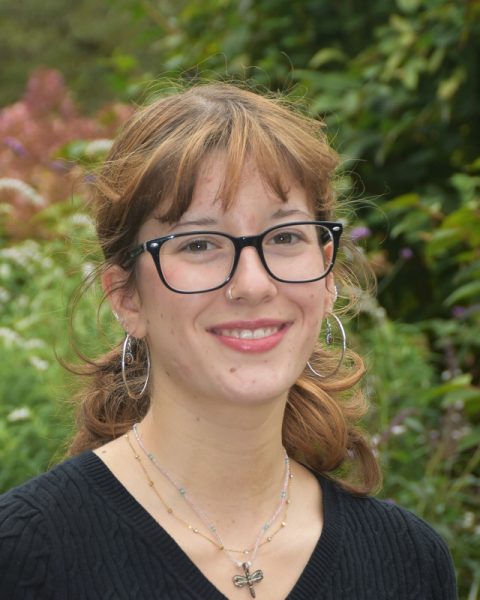
Rick Domann • Jan 27, 2024 at 11:29 am
Amelia, your personal experiences and anecdotes may serve as an apt guide for your peers considering their potential as MUN candidates. Nice perspective!
Rick Domann
Joshua M Bowman • Jan 26, 2024 at 3:15 pm
Amelia, Your classmates will really benefit from your honest insights about MUN. Keep up the great work! Josh Bowman